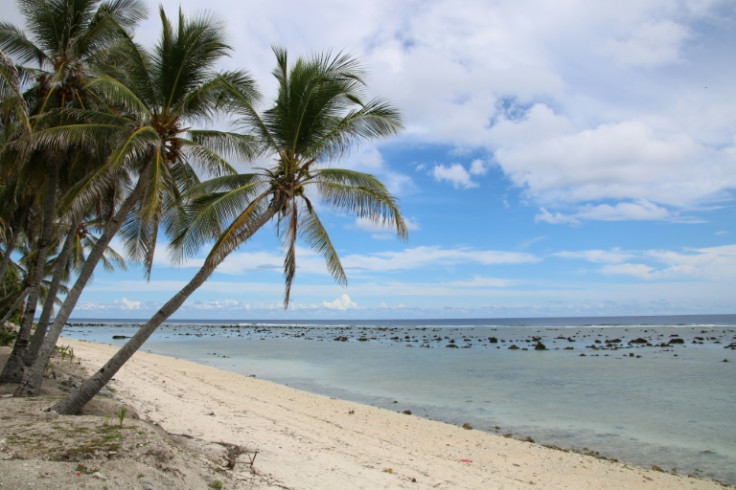Rights Groups Slam Australian Plan To Transfer Criminals To Nauru

Rights groups on Monday denounced an Australian plan to send three violent foreign criminals -- including a murderer -- to live on the tiny Pacific nation of Nauru.
Canberra said Sunday it had paid an undisclosed sum to Nauru -- population about 13,000 -- in return for it issuing 30-year visas to the trio, who lost their Australian visas due to criminal activity.
"There has to be consideration of the lawfulness of banishing people offshore when they've been living as part of our community," said Jane Favero, deputy chief executive of the Asylum Seeker Resource Centre.
"It's a complete disregard of people's human rights."
Home Affairs Minister Tony Burke said the three would be held in immigration detention until they are put on a flight to Nauru or a legal challenge is lodged.
"When somebody has come and treated Australia in a way that has shown appalling character their visas do get cancelled, and when their visas are cancelled they should leave," Burke told reporters.
"All three, though, are violent offenders. One is a murderer," he said.
Once in Nauru, they would live in individual dwellings with a shared kitchen space and be allowed to work and move freely, Burke added.
Authorities have not disclosed the identities, gender or nationalities of the trio, or said whether they had served sentences for their crimes.
Nauru is one of the world's smallest countries with a mainland measuring just 20 square kilometres (around eight square miles).
Phosphate mining once made Nauru one of the world's richest countries per capita, but that boon has long dried up, leaving much of the mainland a barren moonscape and its people facing high unemployment and health issues.
Australia's government has been searching for a way to deal with migrants who have no other country to go to when their visas are cancelled.
The High Court ruled in 2023 that indefinite detention was "unlawful" if deportation was not an option, leading to the release of 220 people in that situation, including the three now destined for Nauru.
Burke said any decision to transfer others to the Pacific island would depend on the Nauru government.
Refugee Council of Australia head Paul Power said the government had a duty to ensure any solution was humane and ensured people's rights and dignity.
"History has shown us the deep mental and physical damage indefinite detention on Nauru has caused," he said.
Under a hardline policy introduced in 2012, Australia sent thousands of migrants attempting to reach the country by boat to "offshore processing" centres.
They were held in two detention centres -- one on Nauru and another, since shuttered, on Papua New Guinea's Manus Island.
The scheme was gradually scaled back following 14 detainee deaths, multiple suicide attempts, and at least six referrals to the International Criminal Court.
Nauru still held 87 people as of August 31, 2024, according to latest Australian government figures.
© Copyright AFP 2025. All rights reserved.





















